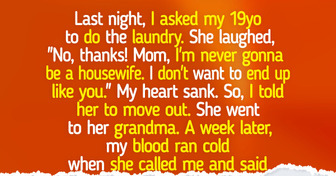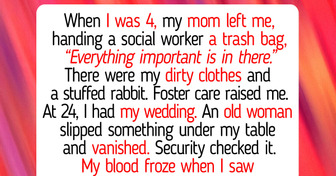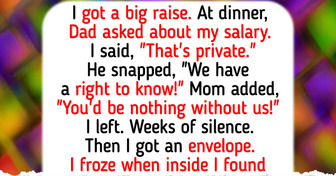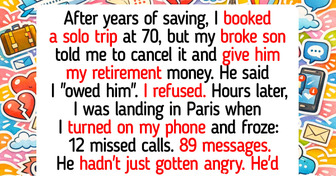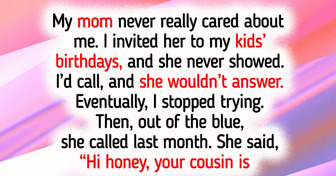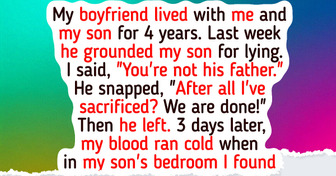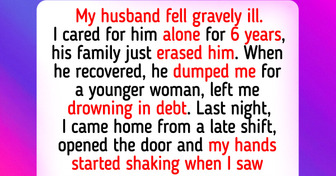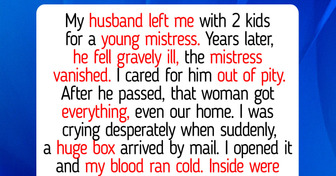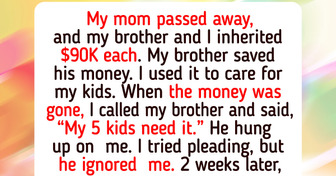I Funded My Wife’s Luxury Demands—She Made Me Regret Every Penny

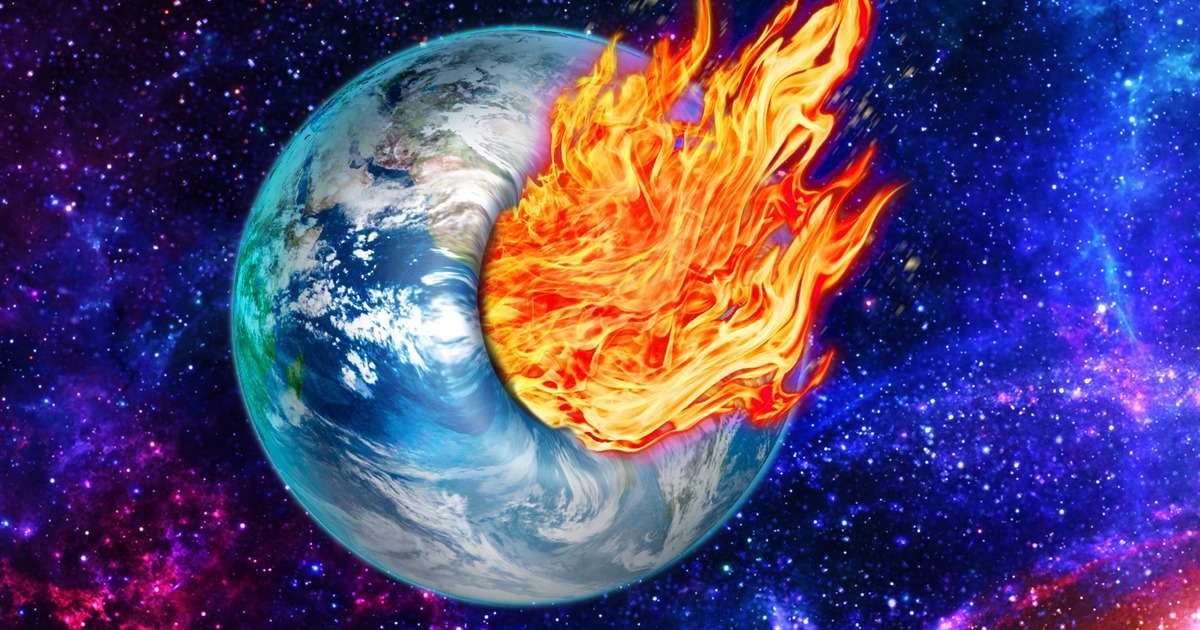
If there were cataclysms on Earth every 5 minutes, living conditions on our planet would be almost the same as 4.5 billion years ago. Back then, seas and oceans boiled, lightning struck everywhere, tectonic plates changed their shape, lava flowed from volcanoes. And worse, no internet!
The Earth resembled a vast, boiling cauldron, where life was gradually being created. If it starts to boil again, this cauldron could destroy almost all life on the planet.
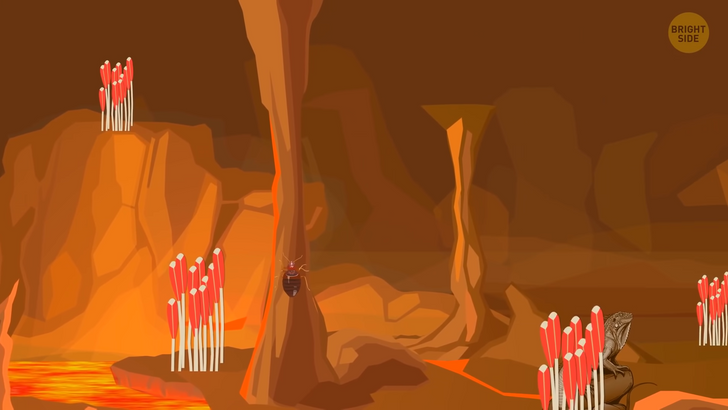
Hmm, consecutive cataclysms — won’t hurt to pretend. Let’s imagine, shall we? Good morning! You wake up in a small underground bunker. The seismic sensor indicates that a 7-point earthquake will start in a few minutes.
You pack a huge waterproof backpack and go upstairs. The underground bunker is protected from seismic activity, it moves with the ground, so you are safe here. But, you need to leave the shelter because supplies are low.
Also, yesterday you picked up a radio signal telling all survivors to go south immediately. The coordinates they gave aren’t far from your location. You have to hurry, though, before the landscape changes again.
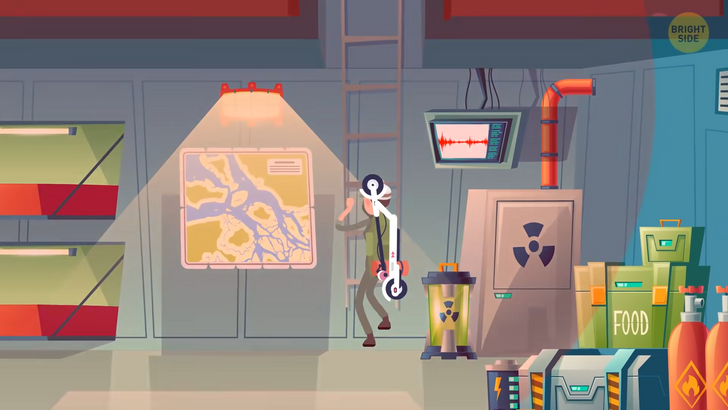
You open the hatch and find yourself in the middle of the desert. The sun is almost invisible beyond the gray sky. The ground is shaking, but you’re not afraid. There are no houses or buildings, nothing to fall on you. You keep your balance perfectly, and the earthquake doesn’t knock you off your feet.
It’s like jumping on a trampoline. The only danger is the deep chasms in the ground, but you can easily jump over them. After such an extreme morning warm-up, you decide to have breakfast. You take a tin can out of your backpack. You have a few minutes before the next disaster, so you eat and remember how your great-grandfather told you how this all started.
Before all of this, the planet was divided into territories called countries. Millions of people lived here, and then something terrible happened. The tectonic plates started to move, and the air temperature and atmospheric pressure began to rapidly change.
In one day, earthquakes destroyed entire cities. Tsunamis and floods washed away the remaining ruins. Volcanic ash blocked the passage of sunlight. Forest fires destroyed almost all vegetation, and eruptions poisoned the air. Only a few people managed to adapt to such harsh conditions, and you are a lucky duck to be one of them.
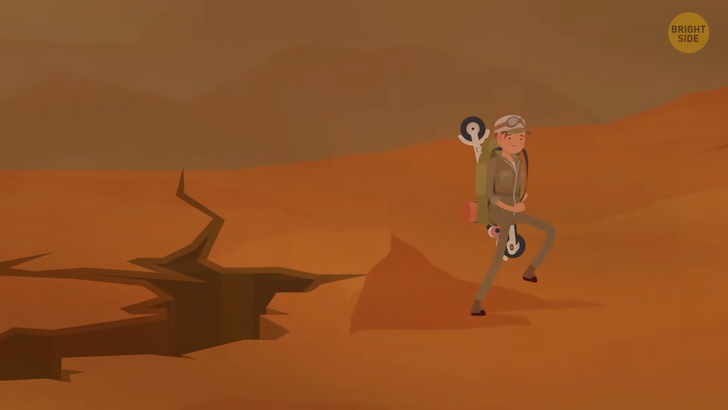
As you finish your breakfast, you’re distracted by another ground tremor—time to move on. Many people travel around the world alone, as they consider it a safer way of life. Some people form small communes, but no one ever stays in one place for too long. Your whole life is in motion, but you don’t panic. One of the main rules during natural disasters is to remain calm, so all survivors have steel nerves and excellent physical training.
You run a few miles south and suddenly smell something strange. You put on a gas mask. The earthquake has created a limnic eruption. Natural carbon dioxide is released from the ground to the surface. You feel comfortable in a gas mask but can’t run fast while wearing it.
Far ahead, you can see a green forest. A rare place that was not affected by fires. You take off the gas mask and go to the tree to take shelter in the shade from the scorching sun. This green area is rich in vegetation. Colorful flowers, strawberries, and many other berries grow here. But you’re concerned.
Such fertile land comes from being near volcanoes. It spews underground magma rich in vitamins and minerals, so vegetation grows. You can see a high mountain in the distance. This is the volcano. An underground push occurs again and provokes an eruption. You collect strawberries and run away from this place as far as possible.
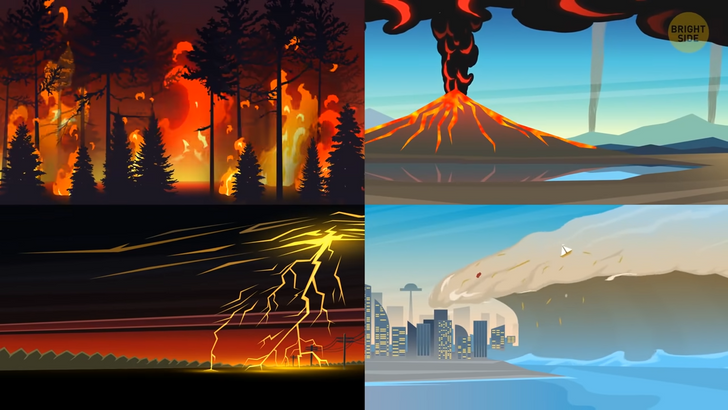
Lava pours from the volcano’s mouth and makes a fire in the forest. You unhook a folding scooter with a motor from your backpack and drive away from the fiery mountain as fast as possible. The sky is covered with volcanic ash, but this is not for long. A strong wind flows, grows with each passing second. You realize a hurricane is moving in your direction. You take out a small shovel and dig a hole in the ground. The soil is dry, but you have enough strength to dig a small ravine in a couple of minutes.
You dive into the shelter and cover yourself with a protective tent. The hurricane blows the volcanic ash in different directions, and the air becomes clear again. But the fire doesn’t stop. The wind spreads throughout the forest. You get out of the ravine and put on the gas mask again. There’s a lot of smoke around. And it’s unbearably hot.
You know the hurricane couldn’t just appear without any reason. Hurricanes are formed when warm, moist air collides with the sea surface and rises to the sky. So, there’s water nearby. Great, because you’re thirsty and want to cool down. A loud sound erupts behind you. You turn around. A massive wave of water approaches the fire.
Without panic, you take your life jacket out of your backpack, remove your gas mask, and put on a diving mask and fins. The wave blows you off your feet, but you don’t drown. Over the years of survival, you have learned to swim very well. You grab a passing tree and wait patiently for the flood to be replaced by another natural disaster. For 5 minutes, you sail under a black, stormy sky that sparkles with lightning. Despite the waves, you try to row south. It’s getting pretty cold. You finally see the shore. But this is not a land, but ice.
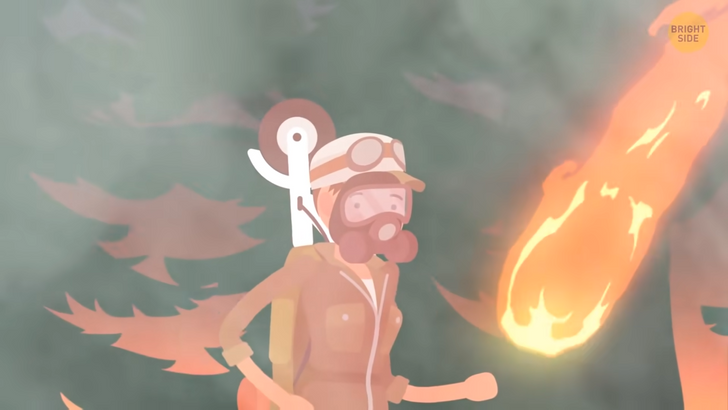
A strong wind brought a cold cyclone, which caused a fast temperature change. It’s like you’re in Antarctica. Snow and blizzards are all around. It’s freezing, but you take out a thin space blanket made from foil and walk slowly south. Under your clothes, you put crumpled paper, bubble wrap, pieces of cotton — all this also helps to warm your body. Along the way, you collect several bottles of snow to melt later.
Icicles form on your face, and you can’t see because of the snowstorm. Suddenly, the snow begins to squish under your feet. The ice melts and turns into water. A hot stream of air blows into your face. You find yourself on hard, dry ground, looking up at the sky, then at your watch. Five minutes pass, and the sky is again covered with black clouds.
You take a metal plate out of your backpack and cover your head with it. A few seconds later, you are hit by heavy rain and hail. Giant balls of ice knock on the metal shield, but you go calmly and even with a smile on your face. The ground becomes wet and loose from icy rocks.
When the hail ends, you pull out all the heat-insulating materials from under your clothes and hide them in your backpack. Then, you lay out a few long spokes of steel. The spokes are wrapped with copper wire. You connect the spokes to each other, making one long antenna. You stick it in the ground and run away.
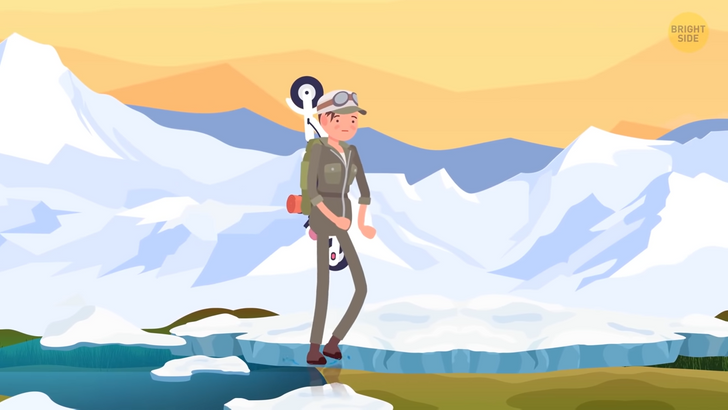
After the hail from the rain clouds, lightning strikes the ground. More precisely, it hits the lightning rod you’ve just built. You wait for the storm to end, then take the lightning rod apart, and return it to your backpack. An intense heat begins. You drink some melted snow and break your way through the desert.
The Earth trembles, and your adventure begins again. Earthquakes, carbon dioxide, fires, floods, snowfall, tsunamis, lightning. And again and again and again. With the help of a compass, you continue your journey and reach your goal a few months later.
You see a long antenna sticking out of the ground. This is a placemark for entering an underground city. The city is built from dozens of massive bunkers connected to each other by tunnels. The city walls don’t allow radiation to pass through, and they don’t bend from daily earthquakes.
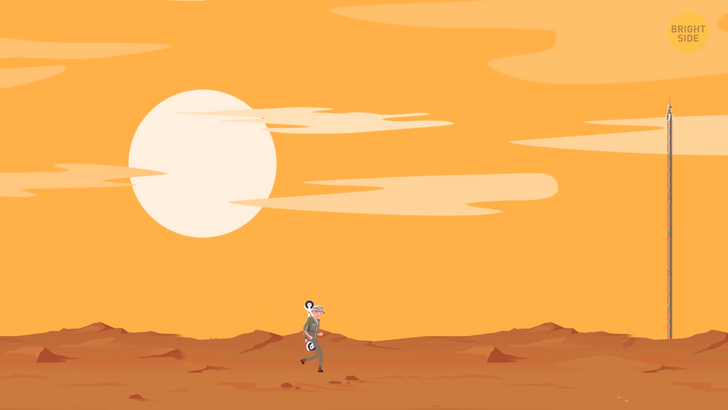
People learned to extract energy from the ground. The Earth’s core gives heat. This heat boils water, then steam is formed, and electricity is created at special stations. People get water from underground lakes and rivers.
Instead of the sun, ultraviolet lamps are installed everywhere, which provide people and plants with necessary light. Natural disasters happen on Earth every 5 minutes, but humanity still has a lot of space underground.

